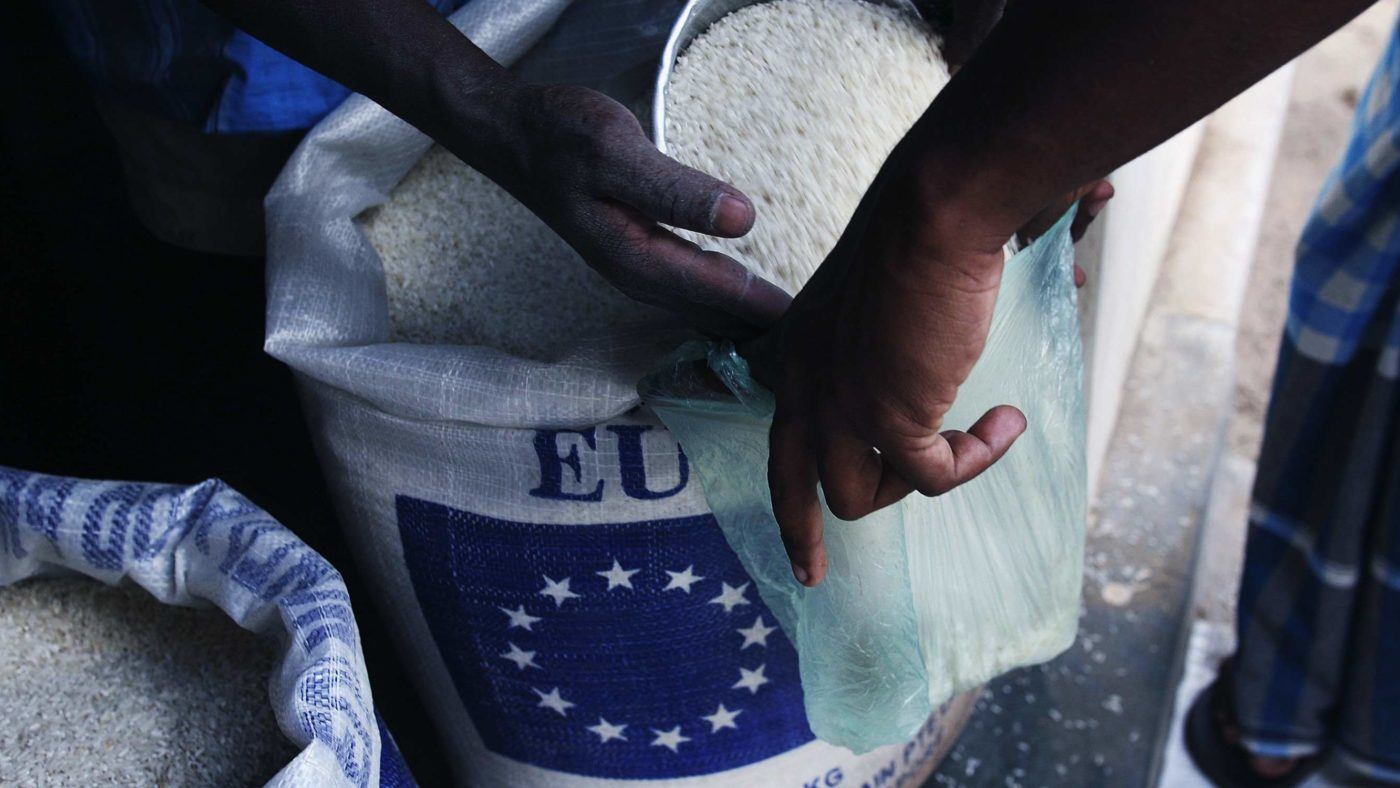Pensions, immigration, workers’ rights, national security, the strength of the pound, the future of the NHS and even the prospect of open war have all been considered in the EU referendum debate so far. But which of the two choices open to the British public will better help to alleviate global poverty?
Four prominent referendum advocates have made their case, hosted by development agency Christian Aid. For Brexit: Conservative MP James Cleverly and the Guardian’s “Loose Canon” Giles Fraser. For Remain: Green Party MP Caroline Lucas and Secretary of State for International Development, Justine Greening. Christian Aid itself hasn’t taken a position on the referendum but the charity does believe that poverty is often political and that political decisions should be made with the world’s poor in mind.
In the firing line for the Brexit case are the EU’s protectionist trade policies, especially relating to food, which artificially hamper commerce and keep poor farmers poor. Despite the EU claiming to promote free market principles MP James Cleverly writes that it actually aggressively prevents millions of people from trading their way out of poverty.
Research by Harvard professor Calestous Juma (previously outlined at CapX) shows that in 2014 Africa made just under 2.4 billion dollars from coffee exports. In the same year Germany made 3.8 billion dollars from coffee exports, despite the fact Germany doesn’t actually grow coffee. Germany’s coffee processing companies need cheap raw coffee to make money, so they lobbied for no tariff on green unroasted coffee beans – but the EU imposes harsh trade tariffs on competing roasted coffee imports. As the world’s biggest single market with a near-insatiable thirst for coffee, this is a gross injustice.
EU firms need raw materials from Africa but it prevents African coffee exporters from competing on a level playing field in the valuable middle tier industries of processing, packaging and distribution. In this way the EU dis-incentivises the kind of investment needed for Africa to lift itself out of poverty. The same story can be told of numerous products including chocolate, to say nothing of the dumping of cheap produce on Africa that is artificially subsidised by the EU’s agricultural policy.
Fellow Conservative Justine Greening argues that if there are polices that need changing then it’s better to keep the British seat at the table and fix them from the inside. Decisions by the EU will affect us whether we’re in it or not, so instead of leaving them for others to decide, it’s preferable to be part of the decision making process: “You don’t get to decide the rules of a club by being outside it.” This gives Britain the influence to shape policies that can help the world’s poorest. By way of example she points to the influence Britain has had shaping the EU’s response to the Syrian humanitarian crisis. Greening argues it’s never been more important to work with other countries to tackle global problems that affect us all such as conflict, disease and mass migration.
These sentiments are echoed by Caroline Lucas who argues that cross-border challenges such as illicit financial flows, climate change and conflict require cross-border solutions. As a former MEP, Lucas can offer a trenchant critique of how the EU is in serious need of reform far beyond what David Cameron sought, with too much power held by elites and too many unaccountable officials. Nonetheless, she says, on big issues like tax dodging the EU can, and has, led the way. “The EU has enormous potential to spread peace, freedom and security in and around Europe, as well as further afield,” she concludes.
For Giles Fraser the main issue is that of sovereignty. Brexit’s turbulent priest recalls how as Vicar of Putney he ministered in the very place where democracy was first debated in the British Isles when the Levellers of Cromwell’s army met in Putney church to argue about the nature of political representation. Unlike some of his fellow BeLeavers, he resents yoking the referendum to the current debate on immigration; as a fan of open borders he is in favour of the EU and Britain taking more Syrian refugees. An acolyte of the late Eurosceptic Tony Benn, Fraser questions why Remain is seen as a progressive cause when the institutions and its policies are so frequently far from progressive. He says: “I seek a world where every people and nation can determine their own fate, the poorest as much as the greatest. The EU is not the answer for the billions who endure poverty around the world.”
The poorest in the world won’t get a vote on the UK’s membership of the EU, but it could have far reaching repercussions for their futures as well as ours. Ultimately the referendum has divided political allies and time will tell if it will see a realignment of British politics. As the debate ramps up to fever pitch over the final day, supporters on both sides hope voters spare a thought for the fates of the world’s poorest people when casting their ballot.


